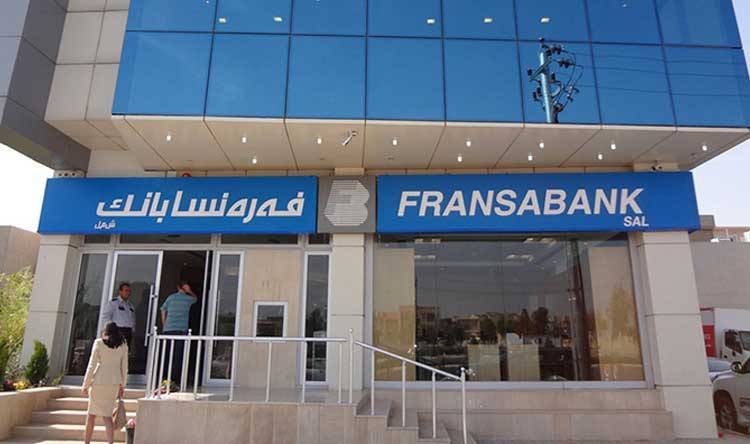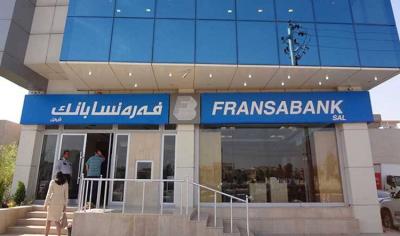Economic entities have speculated that Lebanon may enter a cash liquidity crisis in the local currency, potentially pushing national banks towards mass closures in a country facing exceptionally difficult circumstances and consecutive economic crises. Lebanese banks are planning a two-day strike next week in protest against judicial actions targeting seven major banks. The Association of Banks in Lebanon stated that the strike is a warning against what it termed "arbitrary" judicial decisions, referring to orders to freeze the assets of seven banks since March 14 and to prevent six of their executives from traveling.
Lebanese banks have been paralyzed since the financial system collapsed in 2019 under the weight of massive public debt resulting from decades of corruption, which deprived depositors of their savings. In recent hours, judicial actions have occurred, with enforcement officers in Beirut moving to the main branch of Fransabank in the capital and its branches to begin procedures to seize its assets and seal them, raising questions about the validity of this move.
A few days ago, a special general assembly of banks held an extraordinary meeting that resulted in a statement, declaring, "Banks cannot remain against their will in confrontation with depositors for reasons beyond their responsibility, nor can they bear the consequences of previous financial policies and unjust measures issued by the competent authorities that made them scapegoats for depositors, nor be victims of populist stances stemming from political positioning, or endure illegal measures issued against them."
The association indicated in its statement that "the continued arbitrary and illegal measures against banks jeopardize the banking sector and the interests of depositors, especially in light of the negative repercussions on their relationships with foreign correspondent banks, and also constitute a fatal blow to what remains of the Lebanese economy." They condemned "illegal procedures and arbitrary practices and defamation campaigns emanating from many official and unofficial entities, as well as illegal and arbitrary judicial measures that are tainted with an excess of power."
Banking experts conveyed to "Sky News Arabia" concerns about Lebanon entering a cash liquidity crisis in the national currency, alongside an exceptionally escalating conflict between banks and judicial authorities as decisions to seize funds accumulate. Sources from the banking sector informed "Sky News Arabia" that a decision could soon be made to conduct a warning mass closure, calling on the government and the Central Bank of Lebanon to intervene to agree on a solution to the crisis.
Mohammad Fheyli, a banking risk expert in Lebanon, told "Sky News Arabia" that "some in the banking sector are living as if we had bank deposits valued at $170 billion, while the local production in Lebanon is between $55 and $60 billion. This is no longer correct; currently, we are suffering from a sharp economic contraction in Lebanon to the extent that deposits have dropped to the $100 billion limit or less, and the national output has declined to below $20 billion annually. Moreover, the balance of payments has become negative, and imports have decreased from $22 billion to just $7 billion, indicating that Lebanon's need for liquidity, which maintains the economic wheel that was moving in the right direction, has vanished."
Fheyli clarified that "dealing with any crime committed by a bank or one of the major stakeholders in banks would involve a judicial sentence against that bank or major stakeholders, after which it would be transferred to a special investigation body under the law, which would consider the reasons for what is described as a crime and raise its recommendations to the central council of the Central Bank of Lebanon. The council would then study the case and it would be elevated to the higher banking authority, which has the jurisdiction to close or keep the bank in service since the jurisdiction lies with the Central Bank under which all banks operate."
He added, "Sadly, the judiciary issues populist rulings in response to one of the political blocs," referring to the Free Patriotic Movement of the President of the Republic.
Fheyli assessed that "what is currently available to the monetary authority is sufficient to ensure the liquidity needed by the Lebanese economy, both in Lebanese pounds and in dollars. For over a year, the Central Bank has announced that there are inflationary pressures due to currency printing, and it made the decision to dry up the monetary mass in Lebanese pounds to alleviate inflationary pressures. However, the Russian war in Ukraine imposed inflationary pressures due to the negative supply shock, as essential materials became unavailable and their prices rose. These pressures created inflation, meaning that the cash notes collected by the Central Bank from the market to dry up the monetary mass are no longer related to these pressures, as it has the ability to reintroduce them to enable Lebanese consumers to consume."
Fheyli emphasized the "necessity of activating consumption to keep the economic wheel in Lebanon moving," saying, "The Central Bank either needs to go towards pumping cash liquidity, or activate using payment cards."
He opined that "any cash liquidity crisis would be fabricated or due to the monetary authority's failure to provide the necessary liquidity since the Central Bank can secure it for the national economy due to the contraction in the overall size of the economy."
Fheyli concluded by saying, "What we needed two years ago is now one-tenth of what we need to maintain the economic wheel. The Central Bank is required to reconsider the rules of engagement between it and the banks, and between it and traders, and to expand the use of the Sayrafa platform to not limit it to cash amount against cash amount, but rather to include bank accounts against bank accounts."




